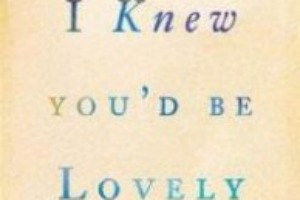This collection of poignant short stories lives up to its name, as each new story is lovelier than the last.
I’ve never been a huge fan of short stories, and I actually picked up this book unaware of the nature of its content. However, it was a happy accident because “I Knew You’d Be Lovely” disproves the theory that short stories are only for authors who can’t create a story or characters with enough depth for a novel.
Ranging from 10 to 23 pages, each of Althea Black’s 13 short stories has a unique storyline and cast of characters, avoiding the overlap that is a tempting pitfall in collections like this. They are beautifully written from different points of view, displaying her talent as a writer for possessing the ability to transition from a man’s third-person to a woman’s narrative voice.
Although Black has only a few pages to get the reader invested in the main character of that particular section, she consistently manages to get readers to care about a character they just met. Her characterizing description is given through background information that also uncovers the character’s hidden thoughts and desires. This is all captured in lyrical prose similar to F. Scott Fitzgerald’s style.
Despite the fact that the individual characters are never revisited, there is an obvious theme that reappears, acting as the common thread that unites the 13 short stories into a book. The motif that binds them is one of crossroads and fate. Each character is at a turning point, confronted with a decision that will undeniably change their life.
For example, readers meet Bradley, the main character of the first short story named “The Things of Which We Cannot Speak,” at a New Year’s Eve party where he meets a woman rendered speechless by laryngitis. Still recuperating from his recent divorce, a call to his ex-wife gives him the bittersweet peace of mind that it is truly over between them. He rings in the New Year in a rather humbling way and then takes the first steps of his new life with Samantha, the woman paralyzed by laryngitis, as they walk arm in arm down the quiet, snow-covered city blocks of Fifth Avenue.
While they are not all love stories, they all reflect on some kind of love, whether it’s between sisters, friends, or lovers.
But this isn’t just a book of sappy, predictable happy endings either. Some stories are left open-ended, allowing the reader to decide the character’s fate. Others have a nostalgic tone, describing the road not taken like the returned engagement ring in “We’ve Got a Bright Future Behind Us.”
Others like “Mollusk Makes a Comeback” and “The Far Side of the Moon,” are more of beginnings than endings. The first tells of a struggling girl finding hope in the midst of her despair and the second describes a man’s courageous choice to go after the girl that got away.
“I Knew You’d Be Lovely” is a testament to the presence of turning points that are often highlighted in literature but overlooked in real life. The varied characters and storylines illustrate how some things fall apart so that better things can fall together, otherwise known as that lovely thing called fate.
Cara Reilly is the Copy Editor Chief for the JCpatriot and JCpatriot.com



